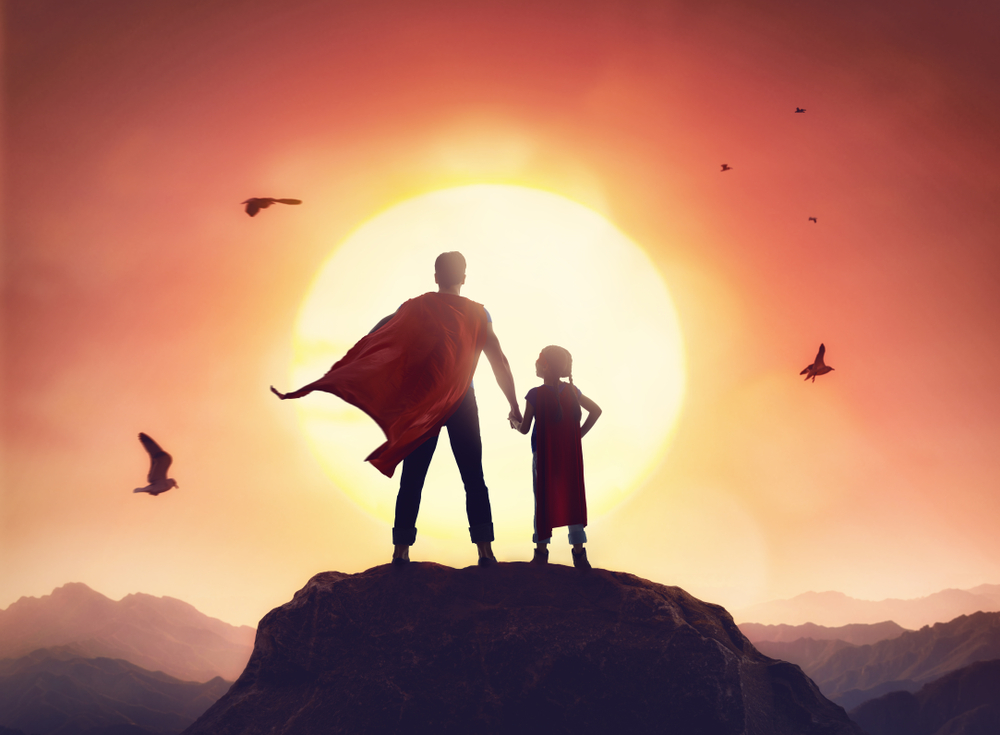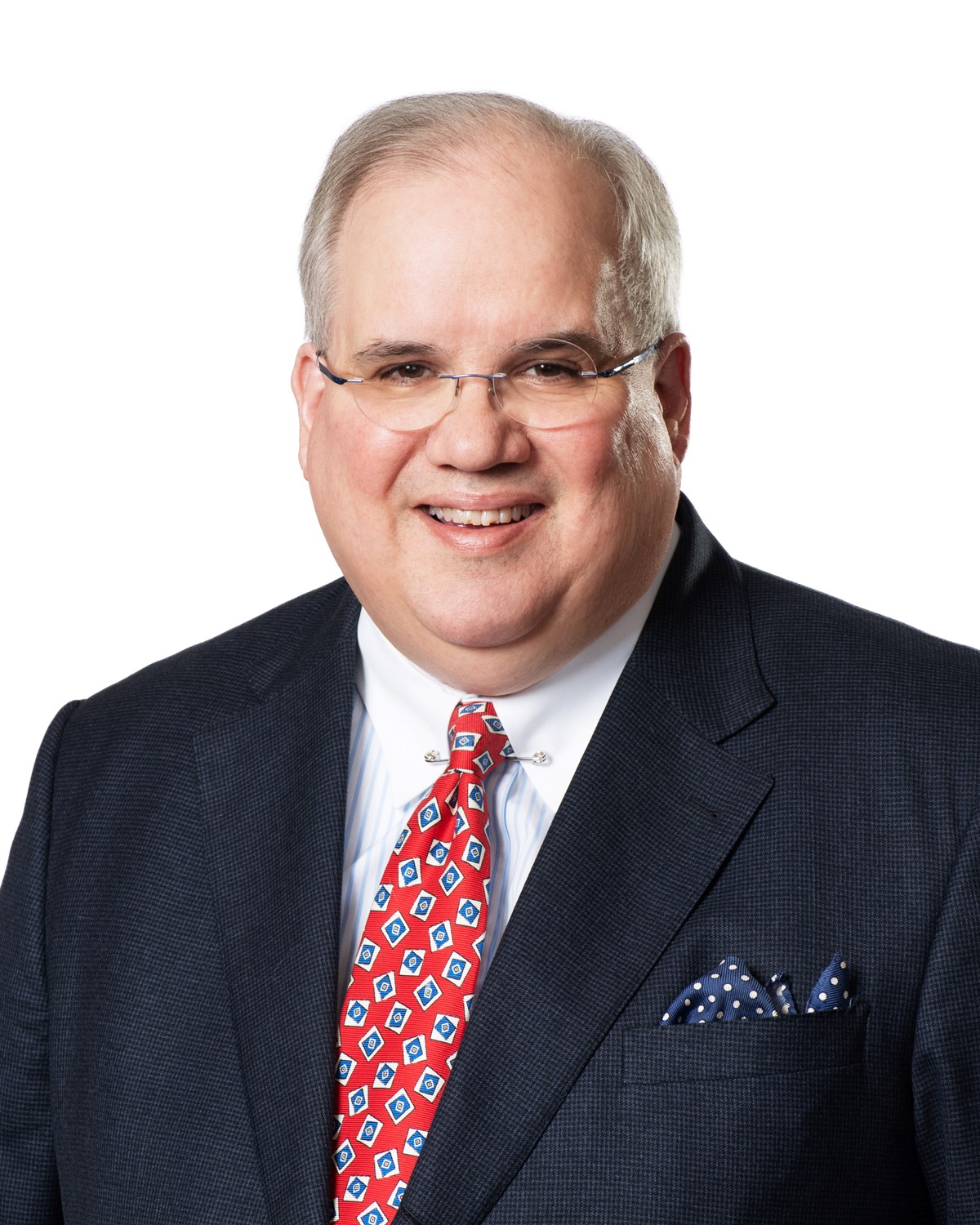What I got for Father’s Day: Reflecting on parenthood, the law and justice

Image from Shutterstock.com.
It’s nearly Father’s Day as I write this. I have to say, I do kind of like Father’s Day. After all, there are 20 kids, more or less, who have called me “Dad” or some variation thereof. And through them, I’ve learned a lot about the American systems of law and justice—not the same thing, you know—that I wouldn’t otherwise have learned despite an expensive legal education and 30-plus years as a deal lawyer.
For example … What? Oh, you’re right. I really should explain myself first. You might well think it’s, um, unorthodox that I suggest I’ve been a dad to approximately 20 kids, and you might well think it’s shocking, even shameful, that I have to give you an estimate because I can’t remember the real number. But it’s not that I’m some sort of promiscuous libertine, or even particularly bad at math. It’s just that my family is probably a bit different than yours. And that difference has changed me, as a lawyer, as a citizen and as a human being.
My wife and I have four kids of our own; the permanent staff, if you will. Each of them joined our family through adoption as newborns. Their ages currently range from 14 to nearly 25. None of them are related by blood to each other or to either my wife or me, but they were the family we were meant to have.
When the two older ones were somewhere around 5 and 6, I was putting them to bed one night while my wife was getting our then-infant daughter settled down. I said, “You know, you’re really lucky you found each other; you were meant to be brother and sister.” My older (at that time, only) son replied, “We didn’t find each other. Mommy found all of us.” Smart one, that kid is.
Where do the rest come in? Well, we’ve been foster parents for the state of Alabama for more than 25 years, going back to before our eldest was born. Our youngest foster child came home from the hospital with us. Our oldest was 18 when she left our home. Some of them were with us for only a few days. For most, it was a matter of months, and for some—soon to include the nearly 2-year-old boy who’s with us now—it’s been two years or more. My wife could tell you exactly how many we’ve fostered, but I really can’t. I suspect that tells you something about the division of labor in our household.
Well, you say, that’s all very interesting, but what does that have to do with law and justice? This is for the ABA, man! Get back to the point!
OK then. You see, left to my own devices, if my life had followed the path I assumed it would, most of the things I’m going to tell you about would not have crossed my mind. I’m a straight white guy who’s lived in Alabama all my life. I’ve been married for 29 years to my high school sweetheart—not right out of high school, obviously. I went to good schools. I’ve done health care-industry deal work for more than 30 years.
I’ve spent more than 20 years at good law firms, broken up by not quite 10 years as general counsel of a New York Stock Exchange-listed company. I’ve made a good living, lived in nice houses, owned decent cars. Heck, my wife and I—and Wells Fargo Mortgage—even have a place at the beach. In short, the system has mostly worked for me, and in the ordinary course, I guess I would have assumed that it worked for everyone.
At least, I would have assumed that if it weren’t for what I learned from the kids. Our kids, and the kids we’ve fostered, and the families of those kids as well.
 William Horton.
William Horton.
My eldest—our older daughter—is African American. She’s dark and beautiful. She’s also one of the very, very few African Americans who live in our suburb. I didn’t fully realize how that made a difference until she got her driver’s license.
You see, when she started driving around our suburb by herself in an old car handed down from her grandmother, the police followed her around. It’s a fairly small place, and eventually they figured out she lived here, but until they did, she was treated as a potentially dangerous stranger; someone who didn’t belong. I had no clue that sort of thing happened. The police didn’t follow me around. But I learned that her relationship with the law enforcement system was always going to be different than mine because I was white and she was black.
Just over three years ago, my wife and I and our younger daughter, then 15, were in a gift shop in a fairly ritzy hotel. My younger daughter is beautiful, too. She’s part African American and part Pacific Islander and part some other things, and she’s brown.
Being 15, the last thing she wanted to do was be anywhere near my wife and me in this shop, so she got as far away from us as she could. If you hadn’t seen us come in together, you wouldn’t have known we were a family. The store clerk hadn’t seen us come in together, so she didn’t see us as this white family—actually, my wife is Native American, but still—with a brown daughter.
Instead, she saw a brown teenager in her shop browsing through the pricey resort wear and trinkets, and she followed that brown teenager—my daughter—like a hawk. I mean, my wife and I probably could have walked off with all the necklaces and knickknacks we wanted, because the clerk wasn’t watching us. She was making sure my daughter couldn’t pocket something. Again, I had no clue that sort of thing happened. It never happened to me.
But I learned the same places that viewed me as potential big spender might instead view my daughter as a potential petty thief. In my skin, I was presumed innocent. In my daughter’s skin, she would not always have that presumption. Her relationship with justice and fairness would be different than mine.
We’ve stayed in touch over the years with one of our former foster daughters, who’s in her 30s now and doing a great job raising her own kids. Unlike my daughters, she’s white. She’s always lived a paycheck-to-paycheck existence, and sometimes there weren’t paychecks. From her, I learned the ways in our legal system can make it be against the law to be poor.
Once, I went to help bail her out of jail. She had been picked up for driving on a suspended license. Her license had been suspended because she had unpaid tickets. She couldn’t pay the tickets because she didn’t have the money. To earn the money, she had to get to work, which necessitated driving on a suspended license. She had no particular desire to violate the law, but once she was in the cycle, she had no particular way to get out of it.
A good lawyer probably could have helped her with that, but good lawyers cost money, and so the cycle begins again. When you don’t have money, the legal system can be like a hamster wheel. Her relationship with that system was different from mine.
The foster care system is, of course, part of the larger welfare system, and through our kids and their birth families, I’ve seen how relentlessly hard that system can be on those caught up in it. It is a system that is chronically underfunded and understaffed. It is also one in which children’s futures, whether they involve reunification with their parents, a long-term foster care arrangement or an adoptive placement, are often at the mercy of an inflexible bureaucracy.
If a hearing date must be continued because someone forgot to bring the right file, it may be a month or more before it can be rescheduled, and the child’s future hangs in limbo. If a placement is disrupted for any reason, a child may be enrolled in two or three schools in the course of a single school year.
If a birth parent’s job can’t accommodate her need to leave when she gets a notice that it’s time for a random drug test, she may lose that job or be set back weeks or months in a reunification plan. The legal system is hard to navigate for those of us with good legal advice and adequate financial resources. From watching our foster kids and their families, I’ve learned that it can be almost impossible to navigate for those in a less fortunate position.
I could go on, but ultimately what I’ve learned from our own kids and from our foster kids is this: It’s easy for me to assume that everyone’s experience with life and with the legal system is the same as mine. It’s easy for me to think that because people generally assume I’m an upstanding citizen and treat me fairly, everyone else gets the benefit of that same assumption.
It’s easy for me to think that if I somehow get crosswise with the law, I’ll have the opportunity to explain myself and get things straightened out. It’s easy for me to assume that because I get justice, everyone else gets it, too. And if they don’t, it must be because they did something wrong and don’t deserve justice.
My kids have taught me otherwise. My kids have taught me that, as a lawyer and as a human being, I have to stop assuming that everyone has the same experiences and perspectives as I do, and instead, try to understand the experiences that have shaped their particular perspectives. My kids have taught me that justice, in the legal system and in life, is a highly personal thing, and that for justice to work, it has to meet people where they are. My kids have taught me, basically, that I have a lot to learn.
And that’s what I’ve gotten for Father’s Day over many years now. It’s a gift I’m profoundly grateful for, and one I hope they keep giving me for a long time to come.
William Horton is co-leader of the health care industry team at Jones Walker and head of the firm’s Birmingham, Alabama, office. He is a past chair of the ABA’s Health Law Section and currently serves in the ABA House of Delegates. In addition to his practice, Horton is an adjunct professor at the University of Alabama School of Law.
ABAJournal.com is accepting queries for original, thoughtful, nonpromotional articles and commentary by unpaid contributors to run in the Your Voice section. Details and submission guidelines are posted at “Your Submissions, Your Voice.”
Your Voice submissions

The ABA Journal wants to host and facilitate conversations among lawyers about their profession. We are now accepting thoughtful, non-promotional articles and commentary by unpaid contributors.

